Automotive Recycling Nylon Hydrogen 27-10-2021 - Arhive
Automotive Recycling Nylon Hydrogen
Crude Oil Prices Trend

-Lycra Teams Up With Swiss Firm on Sustainable Nylon Substitute
- Specialty textile maker HeiQ invents new cellulose-based fiber
- Scaling up presents biggest challenge to new technology
The Lycra Co. is teaming up with a Swiss textile company that discovered a way to create a cellulose-based fiber that can replace less sustainable synthetic fabrics like polyester and nylon.
The yarn, dubbed AeoniQ, is made out of cellulose biopolymer, which can be sourced from a range of natural materials like algae, bacteria or coffee grounds, according to Carlo Centonze, chief executive officer of HeiQ Materials AG. Those resources don’t require fossil fuels and use just a fraction of water.
“It’s a double win: you can substitute polyester and nylon and have a climate-positive effect,” Centonze said in an interview.
The new material can be recycled repeatedly — an issue in the current clothing market, where less than 1% of clothes are recycled and the rest take up space in landfills. The main challenge for HeiQ will be reaching the size and scale needed to truly compete with synthetic rivals, which make up more than 60% of the global annual textile output of more than 100 million metric tons.
HeiQ is starting out small. In March, HeiQ said it will have an annual 100-ton capacity and it plans to license its technology to several factories around the world. Later it aims to build a $300 million site that can make 30,000 tons a year, with full capacity expected in 2024.
“We’ll still be a very, very small fish in the ocean,” Centonze said, adding the company will be looking for as many partners as possible.
The textile industry is one of the world’s most polluting sectors, contributing to 10% of global greenhouse gas emissions. The production of one single T-shirt requires 2,700 liters (713 gallons) of water, which represents enough drinking water for one person for more than two years, according to a report by the European Parliament. Other issues linked to textiles include microfibers that are released through washing synthetics.
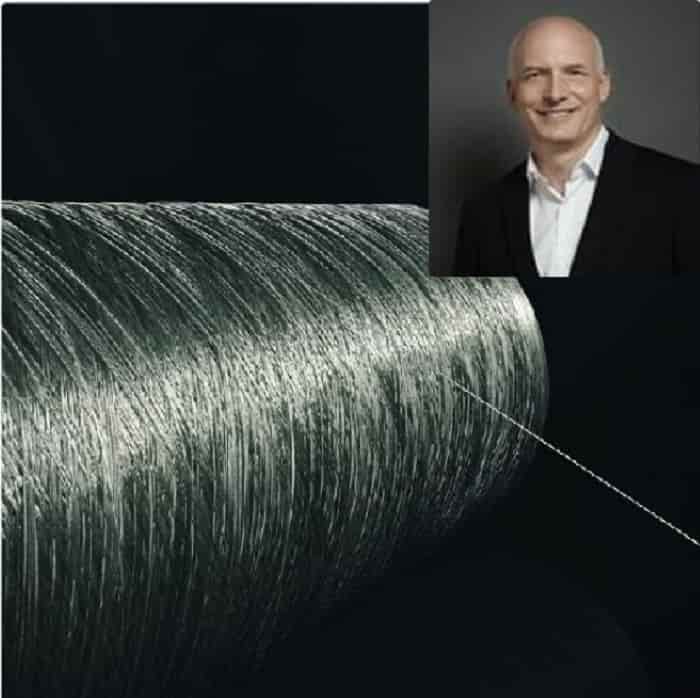
Lycra Teams Up With Swiss Firm on Sustainable Nylon Substitute MR. Carlo Centonze Source: HeiQ Materials AG
SABIC, a global leader in the chemical industry, launched today a new portfolio of bio-based ULTEM™ resins that offer sustainability benefits while delivering exactly the same high performance and processability as incumbent ULTEM materials. These breakthrough polyetherimide (PEI) materials are the first certified renewable high-performance, amorphous polymers available in the industry. Using a mass balance approach[1], for every 100 kg of ULTEM resin produced, SABIC replaces 25.5 kg of fossil-based feedstocks with bio-based materials derived from waste or residue, such as crude tall oil from the wood industry. Automotive Recycling Nylon Hydrogen
This advanced offering is a drop-in material option for current ULTEM materials and can support customers’ sustainability goals for challenging applications in consumer electronics, aerospace, automotive, and other industries where high temperature, dimensional stability or demanding mechanical performance is required.
“Our new bio-based ULTEM resin platform offers customers a seamless way to integrate sustainability into their highly demanding applications,” said Scott Fisher, director, Business Management, ULTEM Resins and Additives, SABIC. “Because these products perform in the same way and maintain the same regulatory listings – such as UL94 and FDA food contact – as traditional ULTEM resins, adjustments to product designs and manufacturing processes are not required. Also, customers can be confident about the environmental benefits of these materials, which have earned the ISCC+ designation. This portfolio is another innovative milestone in SABIC’s strategy of circularity for our material solutions.”
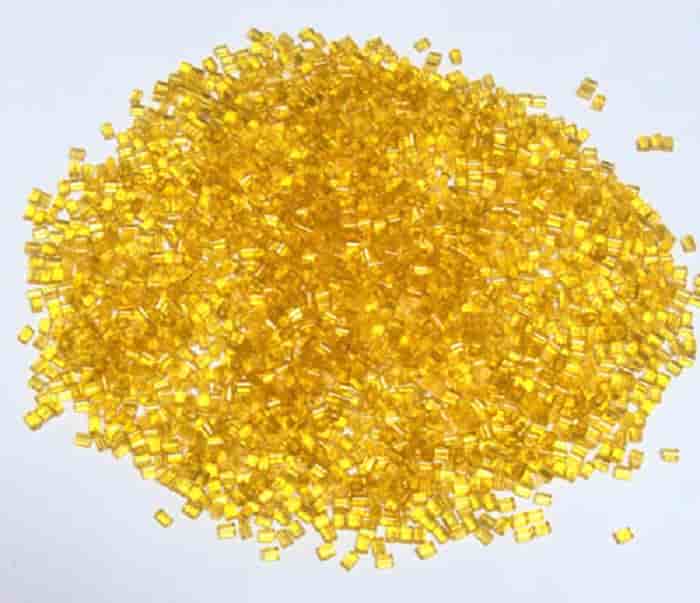
-Building circles in Scandinavia
At the 60th Dornbirn Global Fiber Conference (GFC), held virtually from September 15-17 this year, a range of new regenerated fibres coming out of Scandinavia in response to the new demands of the EU’s Waste Framework Directive, and to a lesser extent, the Single-Use Product Directive (SUPD) for single-use wipes and femcare products, were showcased.
Harald Cavalli-Björkmann, chief growth officer for Sweden’s Renewcell stressed that the four keys to achieving success for these new fibres are:
- Radical impact reduction
- Equal or superior quality
- Parity in pricing
- Massive scale
Renewcell is working with major brands including H&M, Inditex, Kering and Levi Strauss and plans to build a 60,000 ton capacity recycling plant in Sweden for the production of its Circulose fibre.
To make Circulose, discarded cotton textiles such as worn-out denim jeans are repurposed through a process akin to recycling paper, relying on a heavily-patented pulp production process. The incoming waste fabrics are broken down using water. The colour is then stripped from these materials, the slurry-like mixture is dried and the excess water extracted, leaving behind a sheet of Circulose. This sheet is then made into new viscose fibre.
Solutions now
Cavalli-Björkmann also observed that there is currently no recycling process available for turning used textiles back into textiles.
“Fashion needs solutions now,” he said. “The brands decide what gets made and put on the market and they are feeling the pressure, being consumer facing. They have posted ambitious sustainability goals and we are working in the supply chain to help them keep their promises.” Automotive Recycling Nylon Hydrogen
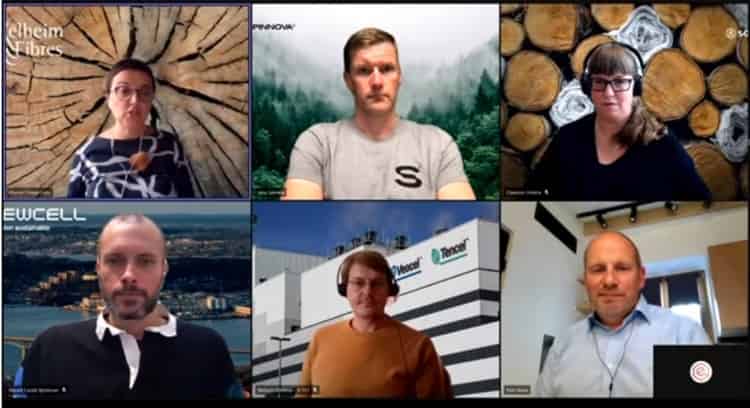
-German firms’ confidence keeps falling on supply chain woes
Supply problems continue to weigh on German corporates’ confidence and are hampering the recovery post-pandemic, the Ifo institute said on Monday.
“Sand in the wheels of the German economy is hampering the recovery,” said Ifo as its Business Climate index fell in October once again.
Capacity utilisation at industrial plants fell sharply in October, down 2.1 percentage points to 84.7%, as firms struggle to source materials on the back of supply bottlenecks.
Most economic sub-sectors posted falling rates of confidence among companies, and sentiment has “has clouded over” as the global supply chain woes are likely to take months to resolve Automotive Recycling Nylon Hydrogen
The ifo Business Climate Index fell from 98.9 points in September to 97.7 points in October.
“Scepticism is increasingly evident in expectations. Companies’ assessments of their current situation are also less positive. Supply problems are giving businesses headaches. Capacity utilisation in manufacturing is falling,” said Ifo’s president Clemens Fuest.
“In manufacturing, the Business Climate Index fell once again. Companies are somewhat less satisfied with their current business. Expectations are also clouding further.”
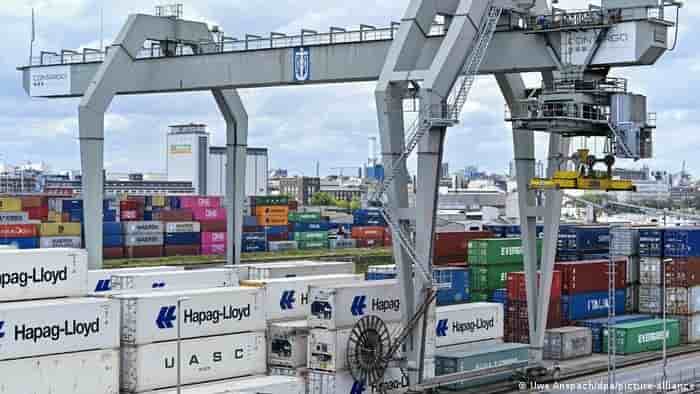
Plastic Energy Ltd., Freepoint Eco-Systems LLC and TotalEnergies have announced a strategic partnership in the U.S. Under this agreement, Plastic Energy and Freepoint Eco-Systems plan to build an advanced recycling plant in Texas, which will transform end-of-life plastic waste into a recycled feedstock called TACOIL using Plastic Energy’s patented technology. TotalEnergies will convert this raw material into virgin-quality polymers, which can be used for food-grade packaging. Automotive Recycling Nylon Hydrogen
The project will process and convert yearly 33,000 tons of post-consumer end-of-life plastic waste that would otherwise be destined for landfill or incineration. The plant is expected to become operational by mid-2024 with TACOIL to be used for the manufacturing of high-quality polymers in TotalEnergies’ Texas-based production units, enabling the creation of items such as flexible and rigid food packaging containers.
Plastic Energy, Freepoint Eco-Systems and TotalEnergies are all firmly committed to developing plastics recycling to address the issue of plastic waste and to build a more circular and sustainable economy in the U.S. and globally. In line with this commitment, TotalEnergies and Plastic Energy announced in September 2020 a joint venture to build a plastic waste conversion facility with a capacity of 15,000 tons per annum at the TotalEnergies Grandpuits zero-crude platform in France. The project is expected to be operational in early 2023.
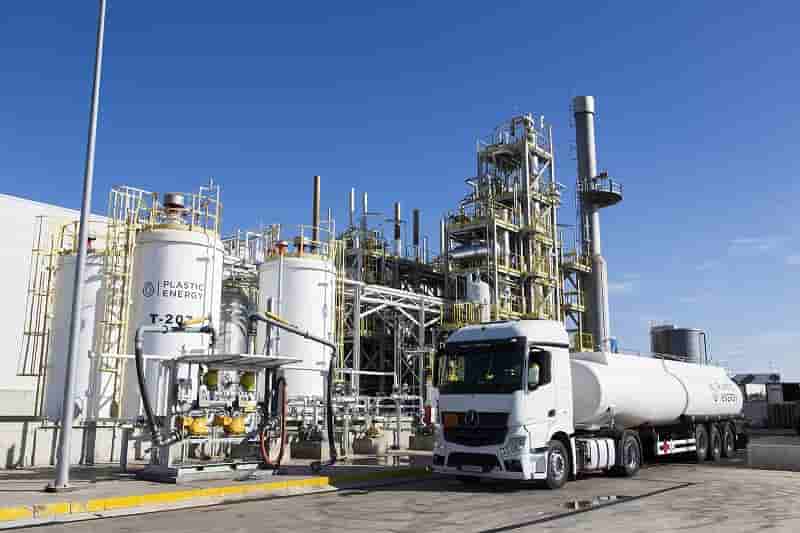
-Faurecia’s sales drop 10% on chips shortage
French supplier hit after automaker customers cut production targets
Faurecia posted a more than 10 percent drop in third-quarter sales on Tuesday, as its customers cut production due to a global shortage of semiconductor chips.
The French supplier, which supplies car seats, dashboards and fuel systems to automakers, reported sales of 3.43 billion euros ($3.99 billion), compared to 3.82 billion euros in the same period of 2020. Automotive Recycling Nylon Hydrogen
“Market conditions remained tough in the past quarter, impacted by adverse supply chain conditions, primarily semiconductors,” CEO Patrick Koller said in a statement.
However, Faurecia said it outperformed worldwide automotive production, citing October forecasts from information provider IHS Markit that showed a more than 19 percent decline in global output.
Automakers such as Renault, Volkswagen and Stellantis — some of Faurecia’s biggest customers — have cut production targets due to the shortage, slowing demand for parts.
The supply chain issues have slowed automakers’ efforts to recover from last year’s coronavirus lockdowns and shift toward making electric vehicles.
In a call with analysts, finance chief Michel Favre said the company was asking for compensation when customers “brutally” cancelled orders with less than a day’s notice. He didn’t say what the response had been.
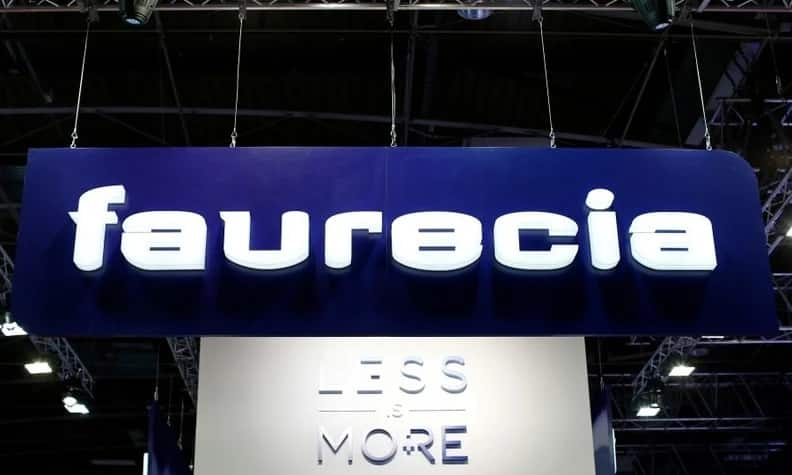
-Vibrant Translucent Colorants for PET and Clarified PP
Ampacet’s Hot Glow collection of four translucent colorants draw attention to consumer packaging and products
A collection of four vibrant, translucent colorants for products and packaging made of PET and clarified PP that command visual attention has been launched by Ampacet. The Hot Glow Collection’s visual energy reportedly supports the messaging for products with high-alcohol-content applications such as sanitizers, alcohol-infused energy drinks and spirits. Both FDA-approved and non-FDA versions are available in four exciting colors: Fueled Yellow, Orange Oxygen, Green Energy and Red Glow.
Said Ampacet director of global insight and innovation Linda Carroll, “The fiery energy and movement of the Hot Glow Collection bring an arresting dynamism to consumer packaging and products.”

-Berghof Testing develops testing for seat safety and comfort functions
Modern vehicle seats feature a multitude of functions, some linked to active vehicle safety systems, which require the use of seat occupancy mats, so-called ‘passive occupant detection systems’ (PODS).
Depending on what weight (an adult, child, shopping bag, or nothing at all) is currently on the seat cushion of the front passenger seat, the PODS sensor activates systems such as the seat belt tensioner and controls the activation of the front passenger airbag in the event of an accident. Automotive Recycling Nylon Hydrogen
The seat occupancy mat consists of a gel-filled cushion, pressure sensors and an electronic control unit. The fact that the car seat has thus become an important and safety-relevant factor in the vehicle presents manufacturers with numerous challenges. Occupancy mats must be calibrated and tested, which is why German specialist Berghof Testing has developed its Seat Function Tester (SFT) and the Force Application Machine (FAM).
According to the company, the FAM helps manufacturers ensure that only functioning and properly calibrated seats will leave their plants. By applying various forces and using control unit communication, it quickly and precisely performs mechanical end-of-line function testing and calibration of the seats without compressed air needed – and in doing so it is a reliable tool of quality assurance of vehicle seats and occupancy mats.

-Sunfire secures Landmark investment to accelerate growth of its Green Hydrogen technologies
Sunfire, a global leader in the development and production of industrial electrolyzers, has secured €109 million ($125 million) of new funding in its Series D round from a consortium of investors led by Lightrock and Planet First Partners, and including Carbon Direct Capital Management, HydrogenOne Capital, and existing shareholders. The new investment will further strengthen Sunfire’s leading position in the rapidly growing market for green hydrogen technologies.
“Today’s announcement marks the largest equity raise of a green-hydrogen-focused private company anywhere to date.1) These new funds will allow Sunfire to bring its advanced pressurized alkaline and game-changing solid oxide (SOEC) electrolysis technologies to industrial scale, building the first in a series of production gigafactories, creating both meaningful electrolysis capacity for our customers and attractive returns for our investors.” Nils Aldag, Co-Founder and CEO of Sunfire, said.
Aldag continued: “Our electrolysis technologies are critical for increasing green hydrogen supply that is needed to decarbonize industrial companies at significant scale. Europe is emerging as a global leader in the hydrogen sector, and Sunfire plans to be a frontrunner by providing world-class technology at scale. We will be hiring a large number of additional talented people across all functional areas to fulfil our promise.”
Sunfire has recently announced plans to scale its alkaline electrolysis business, building a large-scale electrolyzer production site in Germany with an annual manufacturing capacity of 500 MW by 2023 – with a further extension to gigawatt-scale already in planning.
Simultaneously, Sunfire will drive the development of its game-changing solid oxide (SOEC) electrolyzers. SOEC technology is set to change the scale of hydrogen production through both greater efficiency and its unique capability of producing ‘syngas’. Syngas, a mixture of hydrogen and carbon monoxide, can be converted into everything currently produced from fossil crude oil, such as jet fuel, diesel or waxes, but without the harmful emissions that come from using fossil fuel feedstocks.
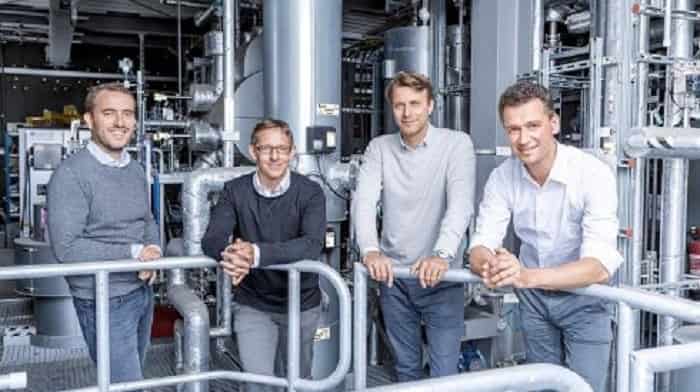
Automotive Recycling Nylon Hydrogen
